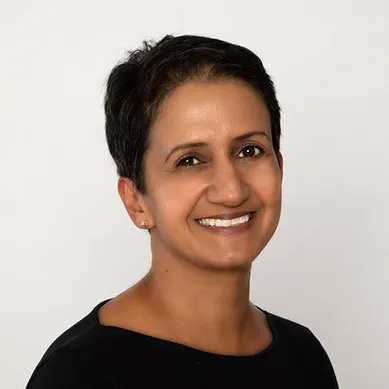Contents
This is some text inside of a div block.
Autism spectrum disorder is highly complex, and the symptoms vary substantially between each young person. We understand that you want the best for your child, but choosing between all of the diagnosis and treatment options can be confusing.
We are here to provide you with clear, practical information so that you can make an informed decision about the best path forward.
Every child with autism spectrum disorder (ASD) is different and needs to be treated as such. We carry out standardised assessments according to the latest guidelines and we make sure that assessments are flexible and customised to the needs of the child. We assess a whole range of other factors that could also be contributing to their difficulties, such as:
It’s incredibly important to take into account all of these factors in addition to the symptoms of autism spectrum disorder so that we can make a holistic treatment plan. By targeting other contributing factors, we often find that the symptoms of autism spectrum disorder also improve, or at least they become more manageable.
Autism is a spectrum condition, meaning that the symptoms vary significantly from person to person and throughout life. While some people with autism will have more subtle difficulties and milder symptoms, others will have more complex needs. Some people might be familiar with the term Asperger’s syndrome referring to a milder form of autism. However, this term is no longer in use now that autism has been recognised as a spectrum condition.
Autism spectrum disorder is a neurodevelopmental condition that begins very early in life. Some children will show noticeable symptoms from birth. In other children, the symptoms may only become evident several years after birth. Children and adolescents with autism spectrum disorder have difficulties communicating with other people and relating to the world around them. They may see, hear and feel the world differently and develop unusual or repetitive patterns of behaviour.
Many people don’t realise that autism spectrum disorder rarely occurs on its own. Unfortunately, other mental and physical health conditions tend to occur alongside autism, making it more complex to treat. Some of the common conditions that may co-occur with autism include:
While the presence of these other conditions can make it more challenging for an autism therapist to diagnose and treat autism, we often find that a holistic treatment approach can make an enormous positive impact. Once other conditions are treated, children tend to become much more confident, and the symptoms of autism become more manageable.
Although each child will have unique limitations and strengths, our ultimate goal is to enable all children to reach their potential and live fulfilling lives.
The symptoms of autism can vary between children and also depend on the cognitive capacity of the child.
Symptoms are usually noticeable across several different areas:
Issues interpreting instructions, or taking things too literally, not using social pleasantries or not responding when spoken to.
Difficulty reading emotions from facial expressions, reading voice tones, understanding gestures, avoiding eye contact, not smiling or understanding body language.
Difficulty understanding social cues, expressions, jokes, not having empathy for others, behaviour not appropriate for specific contexts and difficulty making friends.
Hand flapping, rocking back and forth, strict and inflexible daily routines, very specific and inflexible dietary preferences.
Highly sensitive or strong distaste to certain noises, sounds, smells, tastes, lights or textures.
Very focused and niche interests, little interest in anything but these hobbies or activities.
Autism is a complex neurodevelopmental disorder that may be caused by a combination of genetic, environmental and biological factors. The prevalence of autism is 1% globally and it tends to affect more males than females.
The heritability of autism is high, at 83%, meaning that genetics significantly influence whether someone develops autism or not. However, it’s not a simple case of specific genes that increase the risk for autism. Instead, researchers have identified that some of the genetic risk comes from small mutations in many different genes, with each of these genes contributing a small amount of risk, which is known as polygenic risk. Furthermore, these genes can mutate based on exposure to environmental risk factors (such as low birth weight or smoking during pregnancy), which is a process called epigenetics. Due to the vast number of genes involved, scientists still don’t understand precisely why some children develop autism, while others don’t.
Although it might be scary to learn about these biological factors involved in autism, the good news is that there are a range of therapeutic approaches that improve the symptoms of autism and help your child to live a happy and fulfilling life.
Approximately 70% of children with autism will also have another comorbid condition. It is crucial to identify and treat any other conditions, as improving these may also improve the symptoms of autism.
Common issues that typically co-occur with ASD include:
While the presence of these other conditions can make it more challenging to diagnose and treat autism, we often find that a holistic treatment approach can make an enormous positive impact. Once other conditions are treated, the symptoms of autism become much more manageable.
Once autism is diagnosed, as well as any other potential conditions, an autism therapist will develop a personalised treatment plan specifically for your child. We will develop this with your input, based on your child’s needs and unique circumstances. Understanding your child’s condition and recognising that they have unique needs is integral to supporting them. Your autism therapist can help your child to feel accepted and respected as they are, within a supportive and positive environment that will enable them to live a more fulfilling life.
A treatment plan for autism may combine any of the following evidence-based approaches:
When recommending a treatment plan, we will always follow the current guidelines that are based on evidence-based methods. Popular complementary treatments, such as stress reduction techniques and lifestyle interventions, may also carry a substantial benefit for your child and are low-risk to implement. We always emphasise the importance of formulating a treatment plan that is appropriate for your child under the guidance of a healthcare professional.
Some of our publications in autism research
Sala et al., 2020. Bridging the Gap Between Physical Health and Autism Spectrum Disorder.
Neuropsychiatric Disease and Treatment.





